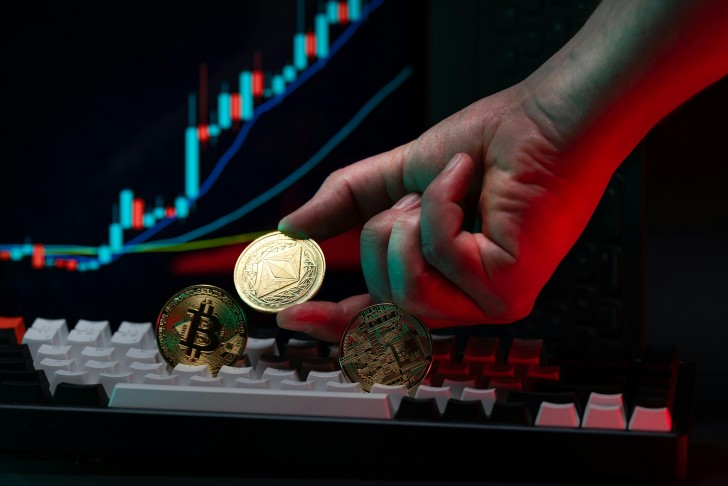Introduction
The cryptocurrency market is known for its volatility, rapid price fluctuations, and liquidity challenges. Unlike traditional financial markets, which have a well-established infrastructure, crypto markets rely heavily on market makers to ensure smooth trading operations. Market makers play a crucial role in enhancing liquidity, reducing bid-ask spreads, and stabilizing price movements, making them a key component of crypto exchanges.
Without market makers, crypto exchanges would struggle with low liquidity, high transaction costs, and increased price volatility, leading to an inefficient trading environment. By continuously placing buy and sell orders, market makers create a healthy trading ecosystem where traders can execute their orders quickly and at fair prices.
This article explores what market makers are, how they function in crypto exchanges, their impact on liquidity, and the advantages and challenges associated with their role.
What is a Market Maker?
Definition and Function
A market maker is an entity—typically a firm, institution, or algorithmic trader—that provides liquidity to financial markets by continuously quoting both buy and sell prices for a given asset. Their primary goal is to facilitate trading by ensuring there is always someone willing to buy or sell at any given time.
How Market Makers Operate in Crypto Exchanges
Market makers operate by:
- Placing large buy and sell orders at different price levels.
- Reducing the bid-ask spread, making it easier for traders to enter and exit positions.
- Executing trades instantly, minimizing slippage and price manipulation.
- Using algorithms and bots to automate trading and adjust prices in real-time.
Example: If Bitcoin is trading at $30,000, a market maker might place buy orders at $29,990 and sell orders at $30,010, ensuring continuous trading activity.
Why Market Makers are Essential for Crypto Exchanges
1. Improving Liquidity
Liquidity refers to how easily an asset can be bought or sold without significantly affecting its price. Market makers:
- Ensure buyers and sellers are always available, reducing delays in order execution.
- Prevent extreme price swings caused by large buy or sell orders.
- Help stabilize low-volume trading pairs, making them more attractive to investors.
2. Reducing the Bid-Ask Spread
The bid-ask spread is the difference between the highest price a buyer is willing to pay and the lowest price a seller is willing to accept. A tight spread means:
✔ Lower trading costs for retail investors.
✔ Faster order execution without excessive price slippage.
✔ A more efficient and competitive market.
3. Preventing Market Manipulation
Market makers help prevent price manipulation by:
- Absorbing sudden spikes in trading volume.
- Reducing the impact of whale trades that could otherwise lead to flash crashes.
- Keeping price movements more predictable.
Example: Without market makers, a single large sell order could drastically drop the price of an asset, discouraging retail traders.
Market Maker Strategies in Crypto Exchanges
1. Arbitrage Trading
Market makers exploit price differences between exchanges by buying low on one exchange and selling high on another, profiting from the spread.
2. High-Frequency Trading (HFT)
HFT involves executing thousands of trades per second using complex algorithms to capture micro-profits on small price movements.
3. Inventory Management
Market makers maintain a balanced inventory of assets to minimize exposure to price fluctuations and ensure continuous liquidity.
4. Market Neutral Strategies
Some market makers hedge their positions using derivatives like futures and options to avoid excessive risk.
Pros and Cons of Market Makers in Crypto Exchanges
Pros
✔ Enhance liquidity, making trading smoother.
✔ Reduce bid-ask spreads, lowering trading costs.
✔ Minimize price manipulation by large traders.
✔ Ensure stability, preventing extreme price fluctuations.
Cons
❌ Can sometimes cause price distortions to maximize their profits.
❌ May use predatory trading algorithms to front-run retail investors.
❌ Are often centralized entities, raising concerns about transparency in decentralized markets.
FAQ: Market Makers in Crypto Exchanges
1. What is the primary role of a market maker in crypto trading?
Market makers provide liquidity by placing continuous buy and sell orders, ensuring seamless trade execution.
2. How do market makers make a profit?
They earn profits through the bid-ask spread, arbitrage, and high-frequency trading strategies.
3. Do all crypto exchanges have market makers?
Most major exchanges rely on market makers to enhance liquidity, especially for low-volume trading pairs.
4. Can market makers manipulate prices?
While they help stabilize prices, some market makers may engage in manipulative tactics to maximize profits.
5. Are market makers necessary for decentralized exchanges (DEXs)?
Yes, but DEXs rely on automated market makers (AMMs) instead of traditional market makers.
6. How does market making impact retail traders?
Market makers create fairer price execution, reducing costs for retail traders by narrowing bid-ask spreads.
7. Can individuals become market makers?
Typically, institutional firms or algorithmic traders act as market makers due to the capital and technology required.
8. What is the difference between a liquidity provider and a market maker?
A liquidity provider supplies funds to liquidity pools in DEXs, while market makers actively trade on order book-based exchanges.
9. What are the risks associated with market making?
Market makers face risks such as inventory loss, price volatility, and regulatory scrutiny.
10. Where can traders learn more about crypto market making?
Platforms like Serendipity Paragon provide educational resources and advanced trading tools for crypto traders.
Conclusion
Market makers are the backbone of liquidity in crypto exchanges, ensuring that buyers and sellers can trade efficiently. By reducing bid-ask spreads, minimizing volatility, and preventing price manipulation, market makers contribute to a healthy and efficient market ecosystem.
Despite some concerns over potential price distortions and market dominance, their role remains critical in both centralized and decentralized trading environments. As crypto trading continues to evolve, market makers will likely play an even greater role in shaping market dynamics.
For traders and investors looking to deepen their understanding of crypto market making, platforms like Serendipity Paragon offer insights, analytics, and automated trading solutions to navigate the complexities of the market.
 Editorial staff
Editorial staff

 Editorial staff
Editorial staff


